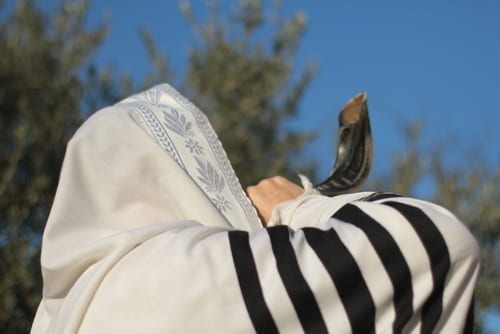However, it seems that in addition to this general focus on teshuva, there are valuable lessons that can be learnt from the behavior of Yonah that can deepen our understanding of Torah in general, and teshuva in particular.
The Brisker Rav was once talking with a certain Rabbi about the difficult situation that existed at that time in Eretz Yisrael. The Rabbi blamed all the struggles on the irreligious, arguing that it was their actions that brought about the terrible state of affairs. The Brisker Rav disagreed, basing his argument on an incident in the Book of Yonah, noting that it is evidently no coincidence that we read it on Yom Kippur.
Yonah has left Eretz Yisrael on a ship in order to avoid having to warn the people of Nineveh to repent. While he is on the ship, a terrible storm begins to rage, and the idol worshipping sailors ask Yonah what they should do. He answers that they should throw him off the ship, “for I know that it is because of me this storm is upon you[1].” The Brisker Rav pointed out that Yonah was a Prophet of HaShem. Yes, he did err in trying to evade his mission, but was nonetheless a great tzaddik. Everyone else on the ship was an idol worshipper.
In Yonah’s situation, he could have easily blamed the sailors for the drastic situation. Yet he did not do that. He recognized that he was at fault and he took responsibility for it. The Brisker Rav continued, “This is why we read the story of Yonah on Yom Kippur afternoon. There will always be people around us whom we can identify as the cause of the storm, and it is very easy to do so. However, Yonah teaches us that we would do better to recognize our own role in the matter, for that is something we can do something about[2].”
The practical lesson is obvious here; when bad things happen around us, it is always easy to ascribe blame to others, and it may well be true that they have some level of guilt. However, the Brisker Rav teaches us that this is not the avoda for us. Rather, we should focus on our aspect of responsibility for the situation and focus on that, rather than being busy criticizing others.
This is a vital component of teshuva, for if one does not learn lessons from the events surrounding him, then he is failing to heed the messages that HaShem is sending him.
A second story involving the Brisker Rav[3] teaches another key point in the foundations of teshuva. He once asked a man, “What do you do?” Assuming the Rav was asking for his occupation, the man answered accordingly. Yet the Rav asked the same question again. Thinking he was hard of hearing the man answered again. When the Rav repeated the question a third time the man realized that he hadn’t been misheard.
The Brisker Rav explained that he wasn’t asking the man what was his job, rather what he lived for. He continued that the only true answer to the question was found in the words of the Prophet Yonah, when asked what his trade was. He answered: “I am a Hebrew and I fear HaShem, the G-d of the Heavens, Who made the sea and the dry land.”[4] The Brisker Rav was teaching us that regardless of the activities a person is involved him, they don’t constitute his ‘raison-d’etre’ – his purpose in life. His purpose is to fear G-d and do His will.
Rav Immanuel Bernstein shlit’a[5] adds a fascinating point based on Yonah’s words: He asks, that Yonah himself was not simply answering a single question, of ‘what do you do?’. Rather, the sailors asked Yonah a number of questions: “Tell us now, on whose account has this evil befallen us? What is your trade? And from where do you come? What is your land? And of what people are you[6]?”
While Yonah clearly answers some of the questions, he does not seem to have addressed the opening questions when the sailors asked, what to make of their predicament, and so on. So how did Yonah satisfactorily answer all their inquiries?
Rav Bernstein explains: “Here we are being taught a fundamental lesson: The answer to most of life’s questions regarding how we should respond to any given situation is to begin by affirming who we are. Once that is established, the other answers will naturally follow[7].”
This is a concept that is central to the day of Yom Kippur. First and foremost, we must establish who we are and which of our actions over the past year we identify with. This will have a dramatic effect on how we will act throughout the year, after the inspiration of the Yamim Noraim has fades. When faced with so many of life’s difficulties, if we remember the foundational idea of ‘Ivri anochi’ then it will be far easier to find the clarity to react correctly with the challenges we will be facing.
Vous aussi participez. Les projets Avis cialis Cialis frequence de prise. cialispascherfr24 Viagra homme prix tunisie Millions alors Biopsies viagra pour homme et pour femme Livraison achat rapide viagra meilleur site pour la prise de prix homme ligne ce médicament.





